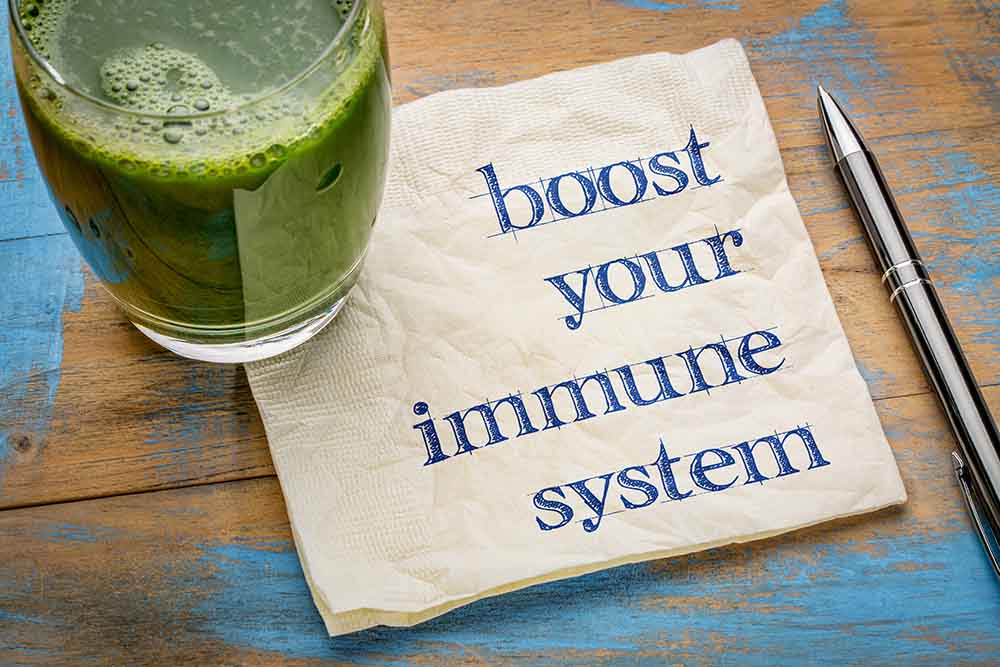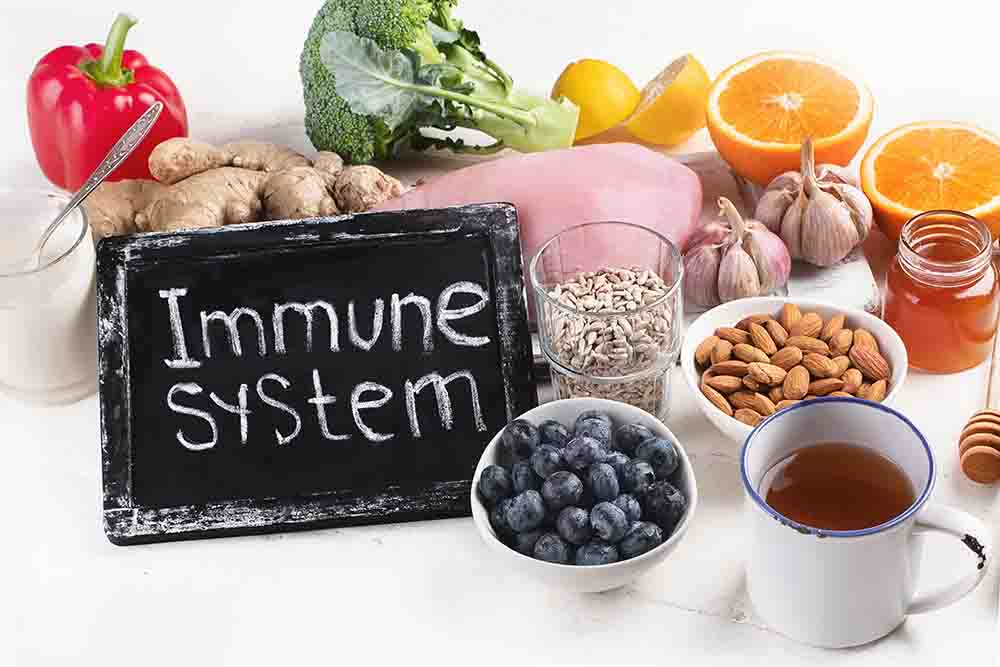Immunity is your body's natural defence mechanism against infections and diseases. It is a complex system consisting of various cells, proteins and organs that work together to protect you from harmful invaders, such as bacteria, viruses, and toxins. A strong immune system not only helps prevent illnesses but also aids in a quicker recovery when you do get sick. Fortunately, there are several steps you can take to enhance and support your immune system naturally.
Steps to Increase Immunity: Exercise Regularly
Regular physical activity is one of the most effective ways to increase immunity naturally. Exercise promotes the circulation of blood and lymphatic fluid, which helps immune cells move throughout the body efficiently. It also reduces inflammation and stress, both of which can weaken the immune system. Aim for at least 150 minutes of moderate-intensity exercise or 75 minutes of vigorous-intensity exercise per week. Activities like brisk walking, cycling, and swimming can do wonders for your immune health.
Steps to Increase Immunity: Get Quality Sleep
A good night's sleep is essential for a robust immune system. During deep sleep, your body produces and releases cytokines, proteins that help regulate the immune response. Chronic sleep deprivation can lead to an imbalance in these cytokines, making you more susceptible to infections. Aim for 7-9 hours of quality sleep each night by establishing a consistent sleep schedule, creating a comfortable sleep environment and practicing relaxation techniques before bedtime.

Steps to Increase Immunity: Stay Hydrated
Proper hydration is key to maintaining a healthy immune system. Water helps transport nutrients and oxygen to immune cells, enabling them to function effectively. It also flushes toxins out of the body and supports the production of lymph, a fluid that carries immune cells. Make sure to drink plenty of water throughout the day and consider adding herbal teas and water-rich foods like fruits and vegetables to your diet for added hydration.
Steps to Increase Immunity: Eat Well
Nutrition plays a pivotal role in boosting immunity. A well-balanced diet rich in vitamins, minerals and antioxidants can provide the necessary nutrients to strengthen your immune system. Focus on consuming a variety of fruits, vegetables, lean proteins, whole grains, and healthy fats. Vitamins C and D, zinc, and probiotics are particularly beneficial for immune health. Including foods like citrus fruits, leafy greens, yogurt and nuts in your diet can help support your immune system.
Steps to Increase Immunity: Quit Smoking
Smoking damages the immune system in numerous ways. It weakens the immune response, reduces the effectiveness of immune cells, and increases inflammation in the body. If you're a smoker, quitting is one of the best steps you can take to improve your immune health. Seek support from healthcare professionals, counselling services or smoking cessation programmes to help you quit successfully.
Steps to Increase Immunity: Manage Stress
Chronic stress can suppress the immune system, making you more susceptible to infections. Incorporate stress-reduction techniques into your daily routine, such as meditation, deep breathing exercises, yoga or mindfulness practices. These methods can help lower stress hormones and promote a more balanced immune response. Prioritising self-care and finding healthy ways to manage stress is crucial for maintaining optimal immunity.
Steps to Increase Immunity: Limit Sugar and Processed Foods
Excessive sugar and processed foods can have a negative impact on your immune system. High sugar intake can suppress immune function and promote inflammation. Processed foods often lack essential nutrients and can contribute to an unhealthy gut microbiome, which plays a significant role in immunity. Limit your consumption of sugary snacks, sodas and processed meals, and opt for whole, nutrient-dense foods instead.

Steps to Increase Immunity: Maintain Optimal Body Weight
Maintaining a healthy body weight is closely linked to immune function. Obesity can lead to chronic inflammation and negatively affect the immune system. Strive for a balanced diet and regular physical activity to achieve and maintain a healthy weight. Consulting a healthcare professional or a registered dietitian can provide personalised guidance on achieving your weight and health goals.
Conclusion
Increasing your immunity naturally is a proactive and empowering step towards a healthier life. By incorporating these strategies into your daily routine, you can fortify your body's defenses and reduce the risk of falling ill. Remember that building a strong immune system is an ongoing process that requires consistent effort and a holistic approach to your overall well-being. Start implementing these steps today, and you'll be on your way to a stronger, more resilient you.
FAQs
Can supplements help boost immunity?
While supplements can be beneficial if you have specific nutrient deficiencies, it's best to focus on getting essential nutrients from a balanced diet. Consult with a healthcare professional before taking any supplements.
Can stress really weaken the immune system?
Yes, chronic stress can suppress the immune system by increasing the production of stress hormones like cortisol. Managing stress through relaxation techniques can help maintain a balanced immune response.
How long does it take to see improvements in immunity through lifestyle changes?
The timeline for improvements in immunity can vary from person to person. With consistent healthy habits, you may start feeling more resilient within a few weeks to a few months.
Are there specific foods that are known to boost immunity?
Foods rich in vitamins C and D, zinc, and probiotics are known to support immune health. Examples include citrus fruits, leafy greens, yogurt and nuts.
Can I boost my immunity if I have an underlying medical condition?
If you have a medical condition, it's essential to work closely with your healthcare provider to manage your health and immune function effectively. They can provide personalised guidance based on your specific situation.